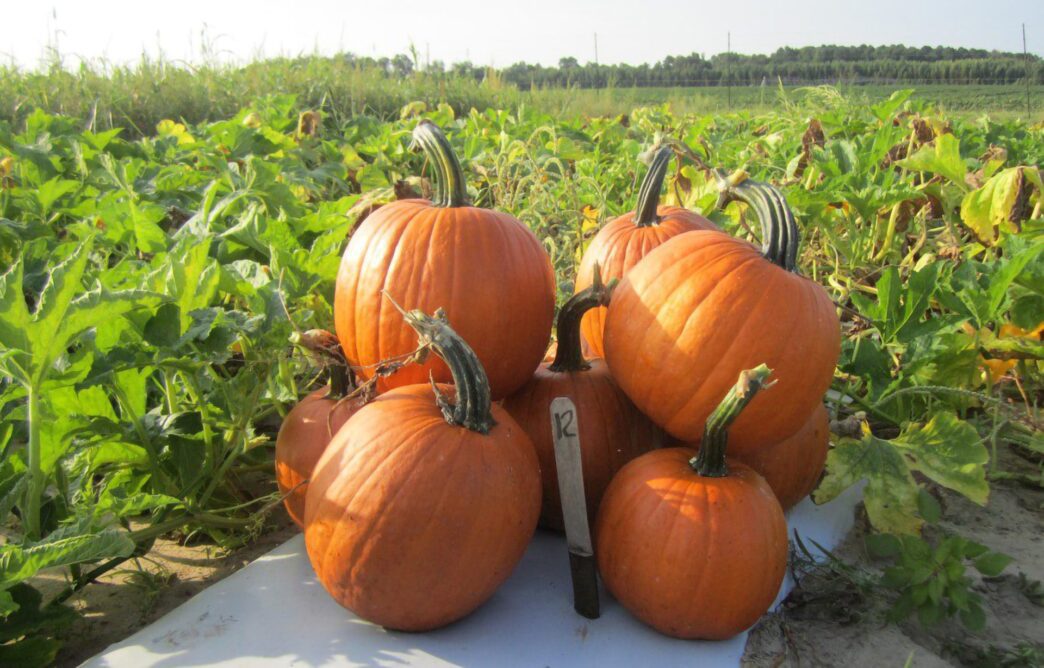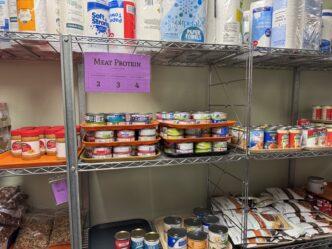The annual Clemson Extension Peanut, Cotton, Vegetable and Fruit Field Day will be held Sept. 4, 2025, at the Edisto Research and Education Center, 64 Research Road, Blackville, South Carolina 29817.
Two field tours – the Peanut Field Tour and the Vegetable and Fruit Field Tour – will run from 9 a.m. to 11:30 a.m. Participants will choose one tour to follow. A trade show will be held from 11:30 a.m. to 1:30 p.m. A Cotton Field Tour will be held from 1:30 p.m. to 4 p.m.
Attendees can earn South Carolina Pesticide Credits, Continuing Education Units and Certified Crop Adviser credits to enhance their professional credentials and expertise.
What to expect?
Peanut Field Tour
Agriculture technology in peanuts
Kendall Kirk, Clemson Extension precision agriculture engineer, will talk about digital tools that can help farmers optimize resource use and improve efficiency. Technologies include variable-rate controllers for herbicides and fertilizers, and drone technology for field monitoring.
New and current varieties
Dan Anco, Clemson Extension peanut specialist, will discuss how selecting which peanut variety to grow impacts how productive a field can be. He will discuss how different characteristics shape how tailored management can maximize harvest results.
Spray combinations
Anco will address how spray combinations can help peanut farmers save time and cut fuel costs and the importance of choosing compatible products to get the best results and avoid crop damage. Participants will visit demonstration plots to see where new growth regulator products were applied with different fungicide and herbicide combinations.
Split seeds at planting – Year 2
Planting is a time of new potential for the year ahead and getting the season off to a strong start. Participants will learn how split seed affects establishment or yield downstream when it’s time to pick. Plots from the second year of this study will be on display. The results so far may surprise some participants.
Effect of drift reduction agents on peanut weed control
Mike Marshall, Clemson Extension weed specialist, will discuss research suggesting that using drift reduction agents with dicamba or 2,4-D herbicide mixtures can negatively impact grass control.
Toward safer peanuts: reducing allergenic proteins and aflatoxins through breeding and biocontrol
Sachin Rustgi, Clemson molecular breeder at the Pee Dee REC, will be joined by graduate students Hrishikesh Ingole and Zachary Jones, who will present their research “Toward Safer Peanuts: Reducing Allergenic Proteins and Aflatoxins through Breeding and Biocontrol.” The scientists will share progress toward developing peanuts with lower allergen levels using traditional plant breeding and advanced genome editing techniques. They will discuss how they have tested these new peanut varieties to confirm reduced levels of key allergenic proteins and a lower potential to trigger allergic reactions. They will also provide updates on how peanut breeding and domestication have influenced allergen levels over time, and how future hotter climates might affect the stability of these low-allergen traits. In addition, they will highlight their innovative biocontrol approach aimed at reducing aflatoxin contamination, further improving the safety of peanut products.
Market situations and policy update
Nathan Smith, Clemson Extension ag economist, will give updates on the current markets and how new policies could affect South Carolina growers.
Vegetable and Fruit Field Tour
Sweet potato breeding updates
Phillip Wadl, research geneticist in charge of the Sweet Potato Breeding Program at the United States Department of Agriculture’s Agriculture Research Service (USDA-ARS) U.S. Vegetable Laboratory in Charleston, South Carolina, will give an update on the various sweet potato breeding studies he is conducting.
Iron biofortification in collard greens
Arshdeep Kaur, a doctoral student working with Bhupinder Jatana, a horticulture assistant professor, will talk about how combining iron fertilizers with commonly used insecticides in a single tank mix can produce nutrient-rich vegetables with little to no extra management burden on producers. Kaur and Jatana will discuss the interactions and feasibility of using the tank mix of iron fertilizers with pesticides for iron biofortification in collards and pesticide efficacy.
Nutrient management and anaerobic soil disinfestation in organic watermelons
Vegetable crop scientists Bhupinder Singh Jatana, Vasanth Kumar and Ashok Sah will discuss an organic transition project that uses carbon-based organic materials for nutrient and pest management in organic production systems.
Nutrient and weed management remain significant challenges in organic vegetable farming. Sah, Kumar and Jatana will discuss using agricultural byproducts to improve the crop nutrient use efficiency and weed management through anaerobic soil disinfestation in organic production.
Unlocking the potential of cover crop-driven anaerobic soil disinfestation for weed control and collard green productivity
Mahmoud Rady, Brian Ward and Matt Cutulle will discuss research involving coupling anaerobic soil disinfestation with cover crops to create an eco-friendly approach to bolstering collard green productivity while effectively managing weeds.
Synergistic approach of cover cropping and reduced tillage on collard green weed management and yield
Rady, Ward and Cutulle discuss the effects of cover cropping and reduced tillage on weed management and yields in collard greens.
Model-based spray programs for bacterial spot management in southeastern peach orchards
Sherin Paul, a graduate student studying under the guidance of Hehe Wang, plant bacteriologist and pathologist, will introduce the development and validation of a web-based disease risk alert system to guide the southeastern peach spray program based on weather conditions. The purpose is to reduce the number of conventional pesticide spray applications sustainably.
Use of biopesticides for the management of peach bacterial spot
Junaed Ahmed, a graduate student also studying under Wang, will introduce the development of biopesticide-based spray programs to manage peach bacterial spot.
Cotton Field Tour
Weed management in cotton
Marshall will talk about the most common weeds in South Carolina cotton fields and how to manage these culprits.
Insect pests in cotton
Jeremy Greene, Clemson Extension entomologist, will discuss safe methods to manage some of the most common insects in South Carolina cotton fields.
Cotton nitrogen fertility management
Bhupinder Farmaha, Clemson Extension nutrient management specialist, will discuss why using the correct amount of nitrogen is essential to improve root growth and yield in cotton.
Event Details
Location: Edisto REC, 64 Research Road, Blackville, SC 29817-4684.
Admission – Free.
Registration – 8 a.m. to 9 a.m.
Trade show – 11:30 a.m. to 1:30 p.m.
Lunch – provided.
Contact: Dan Anco, (630) 207-4926 or, danco@clemson.edu.
-END-








